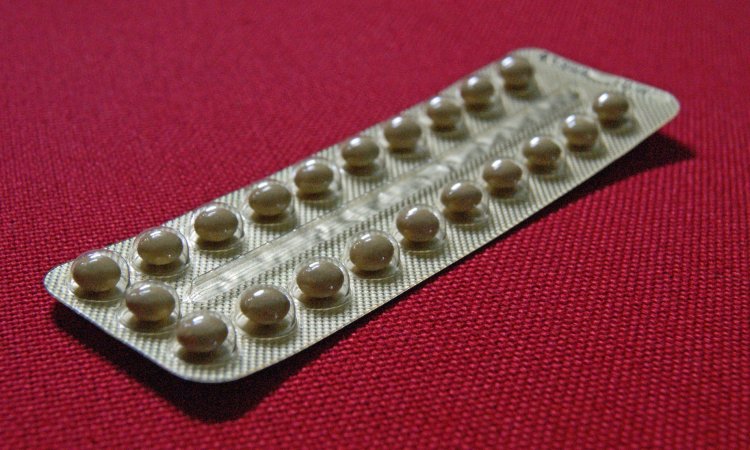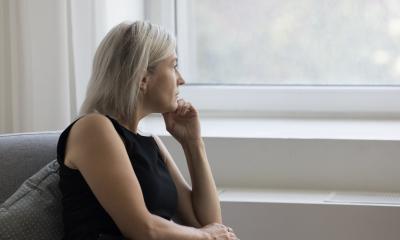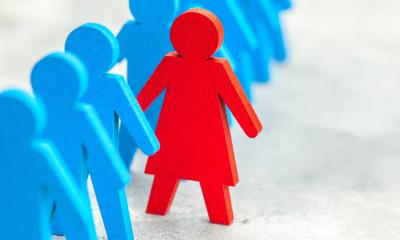Image source: Unsplash/Danilo Alvesd
News • Sex differences in medication
A drug that could help men help cope with fear (but might make things worse for women)
A research team from the Institut de Neurociències at the Universitat Autònoma de Barcelona (INc-UAB) has showed that inhibition through a drug of the Tac2 neuronal circuit, involved in the formation of the memory of fear, has opposite effects on the ability to remember aversive events in mice according to sex: it is reduced in male mice and increased in female mice.
This is the first time that a drug has been shown to produce this opposite effect on the memory of male and female mice. The study also evidences that opposing molecular mechanisms and behaviours can occur in memory formation depending on sex. The study has been published in Nature Communications.
These results demonstrate the ability that hormones have to modulate the formation of fear memories, and show the need to consider sex differences and hormonal cycles in the design of pharmacological treatments for psychiatric disorders
Antonio Florido
The research group on Translational mechanisms of the memory of fear led by Raül Andero, professor and researcher at ICREA, has been studying the functioning of fear memory for years to find treatments for pathologies associated with traumatic experiences, such as post-traumatic stress and phobias. The research team had identified that the Tac2 circuit, located in the amygdala, could be temporarily blocked by the effect of a drug they are studying. This drug, called Osanetant, was able to reduce the capacity to recall traumatic events in male mice. In the study, they discovered that this same drug produces the opposite effect in female mice, increasing their fear memory.
This opposite effect is explained by the fact that, in blocking the Tac2 pathway, the drug interacts with the neuronal receptors of two sex hormones: testosterone in males and estrogen in females. In addition, it has been observed that hormonal fluctuations during the oestrous cycle in female mice, equivalent to the menstrual cycle in women, vary the effects of the drug on the ability to remember aversive events. "These results demonstrate the ability that hormones have to modulate the formation of fear memories, and show the need to consider sex differences and hormonal cycles in the design of pharmacological treatments for psychiatric disorders", says Antonio Florido, INc-UAB predoctoral researcher and first author of the article.
Recommended article

Article • Gender Medicine
“Inclusion of women in studies and guidelines must be increased”
Women and men are different – nobody would argue with this statement. However, in medicine, gender plays a subordinate role. Neither research, prevention nor therapy adequately reflect this difference. “This is no longer acceptable,” says internist and cardiologist Prof. Dr. Vera Regitz-Zagrosek.
In the field of neurosciences, only one study in females is published for every 5.5 done in males. And research on Tac2 pathway has also been done mostly in males so far. “Understanding how and why memory processes differ between sexes is key to designing treatments for fear disorders, especially considering that women are the ones who most often present these types of disorders. Some drugs that are already used may not have the expected effects on them”, says Raül Andero, the study coordinator. “Our findings may help raise awareness of the need to do research differentiating by sex and promote basic and clinical studies that include the female sex”, he adds.
The drug studied is not new, but it is safe for use in humans. However, at the moment it is not being used to treat any disease. Dr. Andero's group is now investigating its potential use in treating fear disorders differently by sex. In this research, which has been carried out in collaboration with other INc-UAB research groups and the Hospital del Mar Medical Research Institute (IMIM), scientists show the importance of personalized medicine. "Mental health drugs that we have today, not only for memory-related disorders, are not specific enough and may be causing contrary effects to those desired", they conclude.
Source: Universitat Autònoma de Barcelona
03.05.2021










